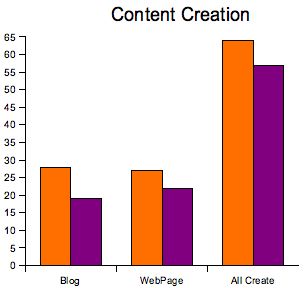Why visit this site (or any other specific site)? I read a post by Kevin Kelly that dealt with a related topic that I found quite interesting. Kelly begins with the topic of digital copies and asks the question why should we pay for anything we can get for free. I consider the copyright issue a great deal and the issues Kelly raised in identifying motivation for payment certainly apply.
The post did cause me to think about a somewhat different topic – with so much recycling of ideas/news/etc. among bloggers (as is the case with this reactive post), why visit the site of any given blogger?
Consider some items from Kelly’s list:
- Immediacy – do you need the resource first
- Personalization – is the resource suited to your needs
- Authenticity – is it the real thing
- Patronage – the desire to support a particular individual (the author)
- Findability – free does not always imply easy access
It is pretty easy to repurpose this list to address various topics that involve “version choice”. With Kelly’s focus, an example might ask do you watch the original broadcast of a television program, watch it via TIVO, buy the end of season compilation at Best Buy, or look for a copy online? You can work your way through Kelly’s list to see how the issues apply to the decisions you make.
The same questions might be asked with regard to the bloggers we follow. We do make choices and some would argue we would be better off if we were more discriminating. Some bloggers offer the original ideas. Some we trust. Some we follow because others do. Some we follow out of loyalty.
There are probably some other issues that apply with blogs. One core idea in online social environments amounts to taking advantage of differences in the perspective/experience of others with whom you share a common interest. The “common interests” becomes the reason for commitment. That individual offers content/insights likely to be useful to you (because of core interests) but that you have not had the time to locate. Maybe this is just another variation of what Kelly calls “personalization”.
There is a downside to “common interests”. When does the input from an individual with common interests encourage deeper thinking or useful insight and when does it simply confirm biases? I think those who think of their blogs as a certain type of educational tool might offer a different approach. Can we locate the individuals who challenge us in addition to offering information to consider? Can we locate the individuals who have a way of explaining how they think and not just what they think? That may be the value added to the copy.
![]()
